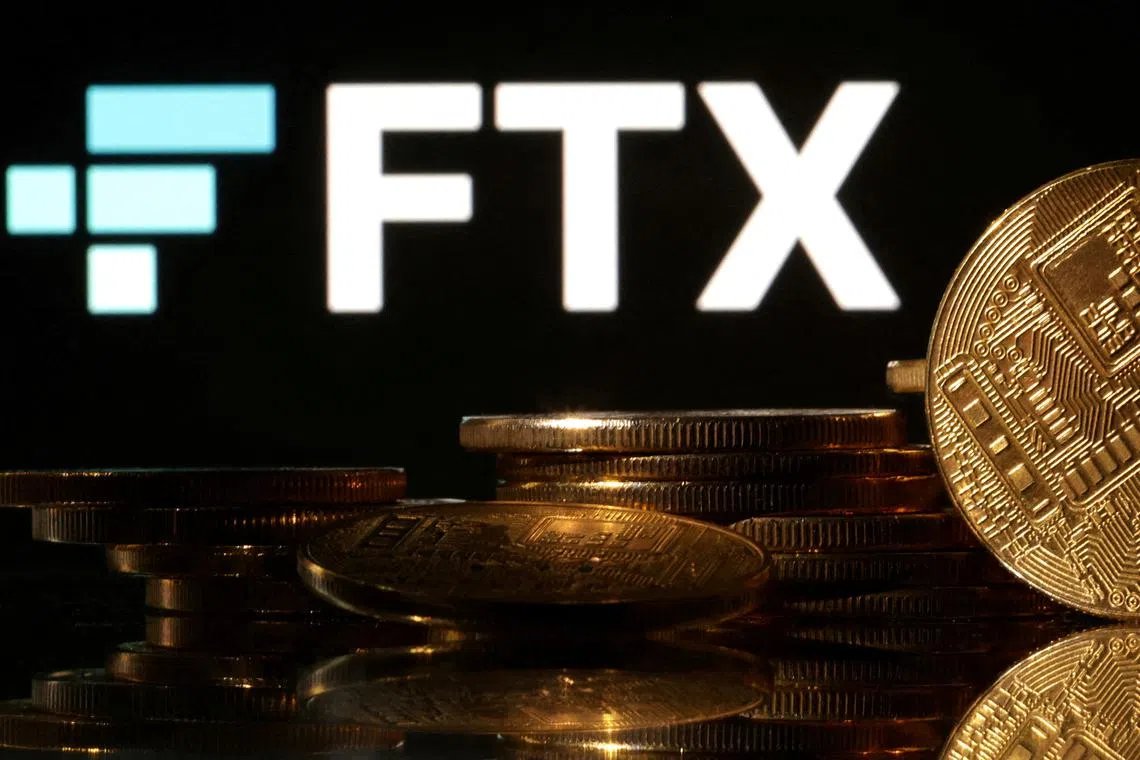Temasek’s FTX write-off will not affect contribution to Singapore’s reserves: Lawrence Wong
Sign up now: Get ST's newsletters delivered to your inbox

After writing off the FTX investment, Temasek’s early-stage portfolio as at March 2022 has generated an internal rate of return in the mid-teens over the last decade, said DPM Lawrence Wong.
PHOTO: REUTERS
SINGAPORE - Temasek’s US$275 million (S$377 million) investment loss in bankrupt cryptocurrency exchange FTX
This is because the NIRC is tied to the overall expected long-term returns of Singapore’s investment entities and not to individual investments, said Deputy Prime Minister Lawrence Wong, who was replying to questions in Parliament on Wednesday.
He also said spillovers from the collapse of FTX to Singapore’s broader financial system and economy “will be very limited”.
“It is disappointing when there is a loss, as in the case of Temasek’s investment in FTX. Even more so because the loss arose from what turned out to be a very badly managed company and from possible fraud and mishandling of customer funds,” said Mr Wong, who is also Finance Minister.
“The fact that other leading global institutional investors like BlackRock and Sequoia Capital also invested in FTX does not mitigate this.”
The nature of investing is having to take risks, and no amount of due diligence and monitoring can completely eliminate such risks, he noted, adding that losses do not imply that the governance system is not working.
“What is important is that our investment entities take lessons from each failure and success, and continue to take well-judged risks in order to achieve good overall returns in the long term.
“In this way, we can continue to add to our national reserves, and provide a stable income stream to fund government programmes for a long time to come,” Mr Wong said.
After writing off the FTX investment, Temasek’s early-stage portfolio as at March has generated an internal rate of return in the mid-teens over the last decade, which is better than industry averages, he said.
Still, what happened with FTX has not only caused a financial loss to Singapore’s investment company, but also reputational damage, Mr Wong said.
He added that Temasek has started an internal review by an independent team that is “separate from the investment team” and will report findings to the board.
When asked about this by Leader of the Opposition Pritam Singh (Aljunied GRC), DPM Wong said the internal review is a step up from the usual review procedure, and it will study and improve Temasek’s processes, as well as draw lessons for the future.
The Government will not rule out getting an external auditor to look into the matter, but it will be for “something that we feel has gone wrong within the organisation, possibly, there might be negligence, there might be fraud, there might be misconduct”, said Mr Wong.
Temasek and sovereign wealth fund GIC have some investments in the digital asset space,
Temasek had pumped money into FTX across two funding rounds from October 2021 to January, while GIC is an investor in a group that has ties to troubled crypto broker Genesis Trading. GIC had told The Straits Times it expects volatility in investments to stay high in the short term.
Mr Wong said the Government does not prescribe guidelines to statutory boards, Temasek, GIC and the Monetary Authority of Singapore (MAS) on the allocation of specific assets or asset classes, be it for cryptocurrencies or others.
Statutory boards have the flexibility to invest their surpluses and typically do this through external fund managers.
For Singapore investment entities, the Government sets out its risk tolerance limits; monitors for appropriate diversification in asset classes, sectors and geographies; and ensures that downside risks are not excessive.
“Ultimately, the Government holds the boards and management teams responsible for formulating investment strategies in accordance with the Government’s overall risk tolerance,” the minister said.
Noting that some MPs have called for more guidelines and safeguards over the investments made by Temasek and GIC, Mr Wong said the governance structures now in place “are already more extensive than those of a typical company”.
Temasek is audited by commercial auditors while GIC, which manages public funds, is audited by the Auditor-General.
“As Fifth Schedule entities, both Temasek and GIC are subject to the President’s oversight of their budgets and key appointments,” Mr Wong said, adding that questions about the entities’ performance are answered by the Finance Ministry in Parliament.
Thus, there is no need for additional audit requirements or parliamentary committees, he said.
“Instead, we should insulate the boards from political pressures. Let them do their work, carry out their responsibilities, and fulfil their investment mandates commercially and professionally.”
Mr Wong told Parliament that Singapore has drawn “a sharp distinction between growing an innovative and responsible digital asset ecosystem and speculation in crypto”, which the authorities have actively discouraged for retail investors.
FTX, he noted, is not the first crypto platform to collapse, nor will it be the last.
Even if a crypto company is well managed, cryptocurrencies themselves are highly volatile and have no intrinsic value, he said. “Those who trade in cryptocurrencies must be prepared to lose all their value. No amount of regulation can remove this risk.”
Mr Wong also touched on MAS’ recent statements, saying the regulator cannot possibly provide in its Investor Alert List (IAL) an exhaustive list of all the unsafe or unlicensed entities that exist in the world.
The IAL is meant to warn the public of entities that may be mistakenly viewed to be regulated by MAS, especially those that solicit Singapore customers without the required licence, he said.
To strengthen safeguards, MAS plans to introduce measures that will have digital payment token providers that are licensed in Singapore set up a risk awareness test to evaluate retail customers, as well as separate customers’ assets from their own to prevent the lending out of customers’ money.



